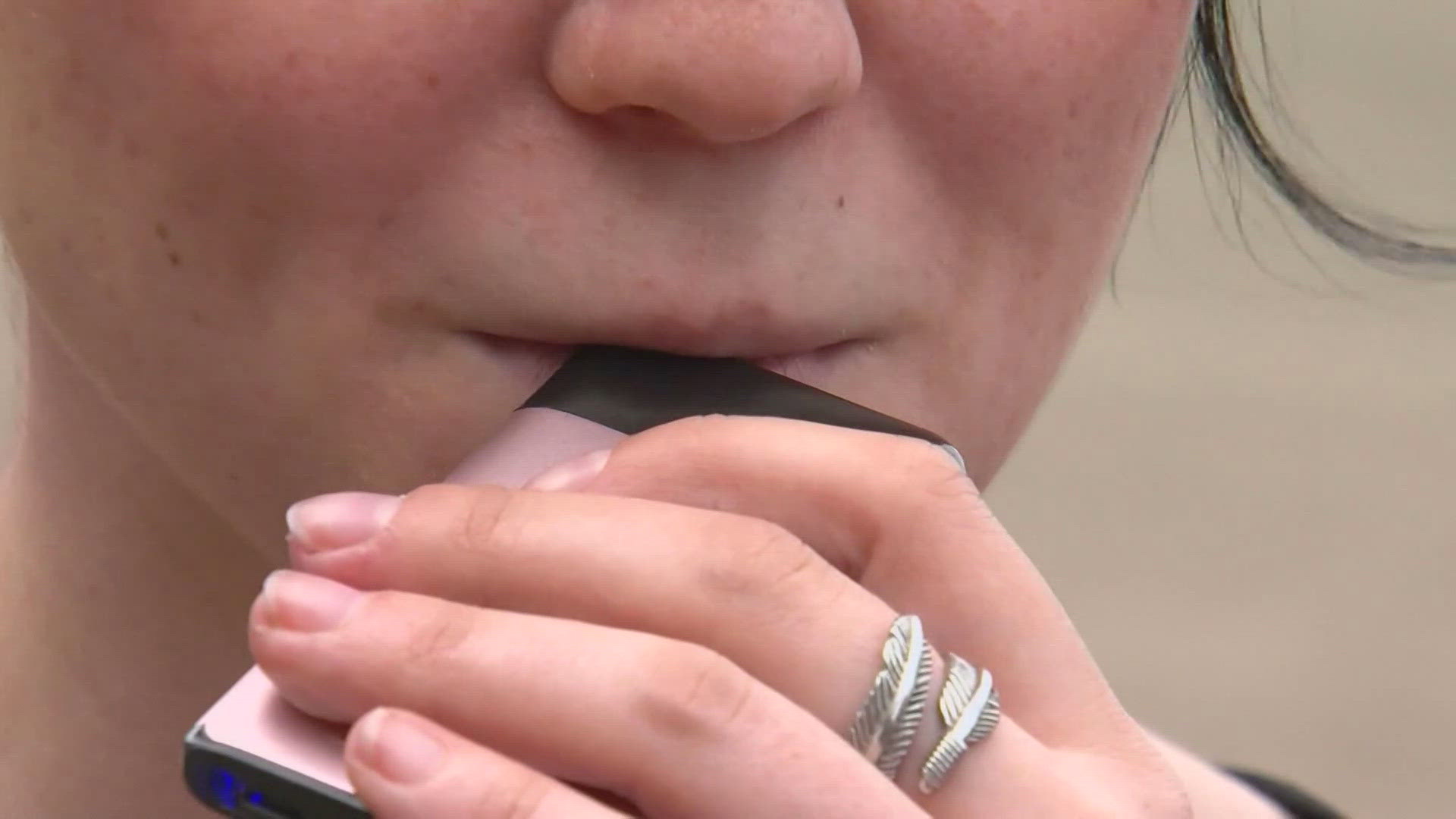MONTGOMERY COUNTY, Md. — Your bathroom "vape breaks" just got busted. Montgomery County Public Schools (MCPS) are cracking down with new detectors, and they’re as sneaky as you think you are.
MCPS will soon see the installation of vape detection systems in its high schools, following the county council's approval of a $2 million supplemental appropriation. The funding, sourced from the Juul settlement, aims to mitigate the growing health concerns surrounding vaping among students and create safer school environments.
On Tuesday, the Montgomery County Council held a public hearing and unanimously adopted a resolution to approve Supplemental Appropriation #25-17 to the FY25 Operating Budget. The $2 million will come from the $7.5 million Maryland won in the class action lawsuit against Juul. The legal case in which the e-cigarette company was held accountable for its role in marketing to minors. The funds will specifically be used for vape detection and prevention efforts in MCPS high schools.
Vaping has become a significant public health concern, particularly among middle and high school students. According to the CDC, e-cigarettes are the most commonly used tobacco product by students in the U.S. CDC numbers show that Maryland has the highest number of vaping teens in the DMV region, and most of them use flavored and disposable products, so council leaders say this is a priority.
To address this, MCPS will use the grant to install vape detection systems in high-traffic areas such as restrooms, where vaping often occurs away from staff supervision.
“If you go into too many of our schools, you’ll see cartridges in the trash cans in the bathrooms,” says Council President Andrew Friedson. “It is an epidemic, we’ve heard it from students, we’ve heard it from teachers, we’ve heard it from counselors, and we are diligently and aggressively working together with our partners in the school system to address it.”
Vape detectors are special devices made to detect the chemicals and particles found in e-cigarette vapor. Unlike smoke detectors, which only detect smoke from fire, vape detectors can sense the vapor from e-cigarettes. They use sensors to notice changes in the air, such as certain chemicals, humidity, and tiny particles linked to vaping.
When the detector spots vaping, it sends an alert to school staff right away so they can act quickly. Some advanced detectors can even pick up on loud noises or tampering, providing extra security. This helps school officials address vaping before it becomes a bigger issue.
The installation of these detectors is part of a broader effort to combat the rise of vaping and its associated health risks among students. E-cigarettes often contain nicotine, a highly addictive substance, and can expose users to harmful chemicals. By installing vape detectors, MCPS aims to not only enforce policies but also foster a healthier school environment.
Before the council voted, it opened the floor to hear feedback from residents.
Only one came forward: Scott Webber of the Vaping Awareness Public Education Society.
Webber not only opposed the school board’s plans, he also questioned schools’ ability to enforce any rules around the detectors.
“The administration around it is absolutely nonsensical,” he argued. “It makes a lot of money for someone who makes a vape detection system.”
The approved $2 million funding won’t impact Montgomery County’s General Fund. It's a one-time state grant, and no ongoing costs for staff or new services are expected. This allows MCPS to install vape detectors without putting extra financial pressure on the school district's budget.
In the coming months, MCPS plans to begin the installation process, with detectors expected to be operational in all high schools by the end of the 2024–2025 academic year.

